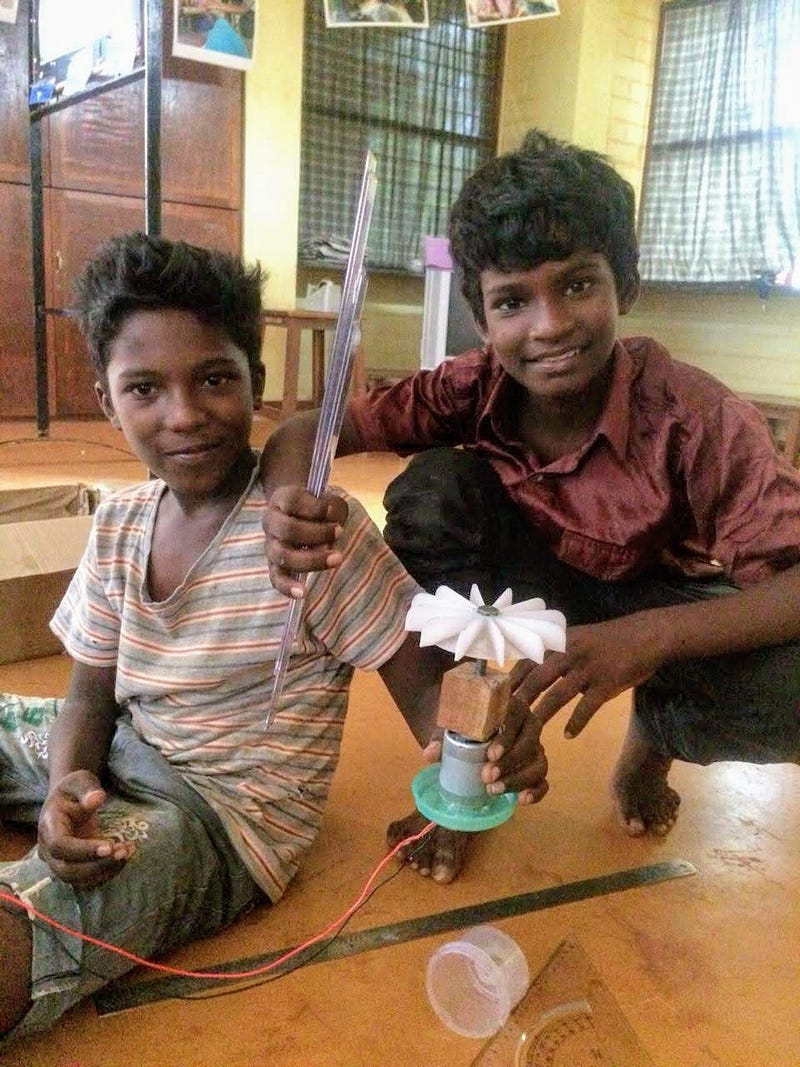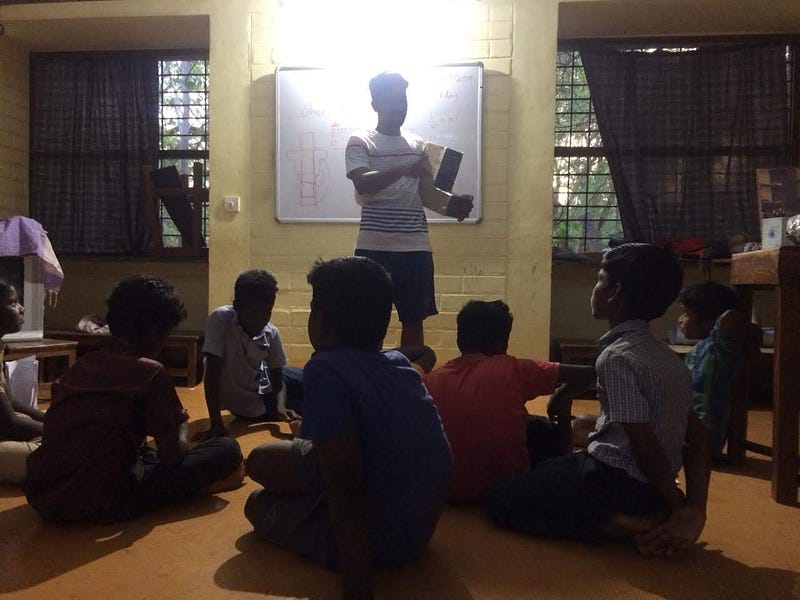The Lead By Design program started about 5 months back in Auroville, Pondicherry for a group of 11 students from two different communities, the edayanchavadi and kottakarai village communities.
It was in the initial phase difficult to get these communities together, especially the parents to allow their children to learn with each other owing to their varied social backgrounds. There were certain occasions while their used to be communal clashes. Even now, for instance, these clashes continue where one community always suppresses the other owing to the status. It was also observed that these children from the ‘lower’ status were labelled throughout. The labelling however was not something which happened all of a sudden. It has been happening right from when the french rule was initiated in Pondicherry.
Bringing the children from these two groups together comprised of this historical baggage, which was also an important challenge for us. Nevertheless, we were optimistic about how the intervention could somehow bring these children together. Even if their parents have differences, what if the bonding between these two communities could somehow bridge them together, breaking the social shackles that prevent a peaceful communal cohesion from happening.
We could glimpse through these aspects while taking the children for community walks. The mixing of these two groups were almost always not entertained, and it was advised to not carry out these community walks owing to potential law and order situations.
Having been made aware, we continued to move forward with the first phase, the unconditioning phase. And it was nice to see them welcome the social change, sitting together, making their own designs with neither the labels nor the labelling. Things started to fall in place.
Through the three different stages of our program, they had recently identified a key issue within their own community. Owing to the power outages which were quite frequent in their village, it was observed that the childrens paents were not able to use the mixie. The children wanted to make a customised mixie for grating coconuts especially during power outages!
This was the context with which they started developing their solution further. As they had to work in teams and communicate the designs, we could observe the change in their level of communication through the process. At first they were finding it difficult to communicate abstract ideas. They did that mostly through oral interpretations, but now they have gotten into a certain degree of professionalism by drawing their ideas with proper dimensioning.


Apart from the values which are intended through our program such as team building, empathy and problem solving skills, we could see them being enriched with an enhanced understanding of tools and techniques. For instance, as they were already trained with basics of sheet metal work and basics of electrical work and also wood work (having taken part in a bamboo workshop to make joineries), they were able to reflect back on the learnings.
For making the customised mixie materialise, they were able to make a shaft coupling with wooden blocks, also making a custom coupling mechanism after having learnt how to tap drills to bore threads from the facilitator. It was also nice to observe them imagine the 3D objects and make the 2D drawings out of it, to communicate internally within the team members.
One of the major observations from our intervention in Auroville was how fast the children can actually learn crucial engineering concepts meant for a slightly advanced level of product design. Our initial fears were that it would be a bit complicated for the children to understand. However, surprisingly children somehow knew these concepts quite intuitively!
For instance, during one of the trainings for the basics of how motors work, the children were at once able to identify the relationship between power and speed while being connected using a belt. This surprised us as facilitators. In the end, they were able to make a mixer using high torque motors which is completely battery run. Not just that, they were also able to get it to the desired rpm to grate the coconuts.

In the end, it was a job well done. The children are currently excited to present their work in an upcoming exhibition within the Auroville campus. Onward!
There are a lot of learnings from this intervention for us, as a program. To become true leaders of their community, skill building alone is not enough, holistic community development is equally required.
Another aspect was in terms of self-reflection. In this age especially when we are choked with information overload (literally trying to drink water from a hosepipe unsuccessfully), self-reflection becomes even more important to deeply ponder about various ideas and concepts. Whether the process was right or not. Whether the outcome was as intended or not. If not, do we just go with the flow and move on to the next one. These are very important aspects that our children need to learn and realise.
